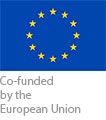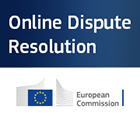Recognise and prevent fraud
Scammers are becoming increasingly professional and smart. They use artificial intelligence, misuse data, and design user interfaces known as ‘dark patterns’. Always be vigilant and critical so you can recognise fraudulent emails, misleading offers, fake invoices and other scams.
Below, ECC Belgium provides some advice that will help you learn to detect scams and avoid falling into some common traps.
- Do the WebshopCheckbefore buying online.
- An offer seems too good to be true?Then it probably is. Nobody wins a dream holiday or a huge sum of money just like that. It might be tempting to click on the link — but don’t do it, because this scenario smells like a scam.
- Read reviews before buying anything. How others rate sellers often gives you a good idea about the reliability of a shop. But you should even look at online reviews with a critical eye, because they can be manipulated too.
- Make absolutely no payment if someone asks you for money for no obvious or logical reason. If you do intend to pay, use a secure means of payment, such as a credit card. The chargeback procedure protects you from abuse.
- Never share your bank details and personal information on the phone or via email or text message.This information is very valuable to scammers. Doing so allows a fraudulent seller to withdraw money from your bank account, without your agreement.
- Be vigilant if an unknown salesperson shows up unannounced at your front door, calls you or messages you. Chances are, they’ll try to win you over with a smooth sales pitch, or they may be a scammer.
- Don’t click on any old web link. Even if the URL ends in ‘.be’ and it appears to be a local site. And even if there’s an official brand or company name in a URL or email address. That doesn’t automatically mean it’s a safe website or a trustworthy sender.
- Always read all the information before you accept an offer. Don’t skip the small print either, because nothing comes for free. Always look for the catch, and check what information is required from you.
- Are you in doubt? Then act accordingly.End a suspicious phone call immediately and never click on a suspicious-looking link. Take your time to think or check something and don’t be persuaded into saying yes. If you receive a phishing email, forward it to [email protected].


